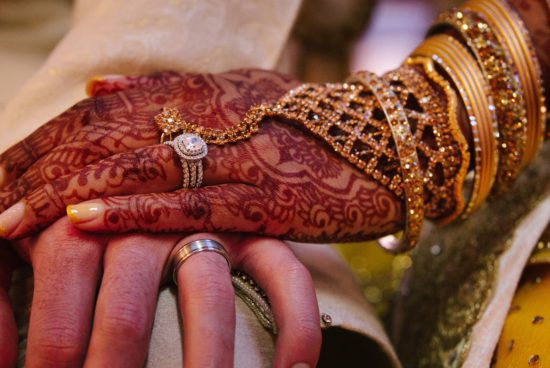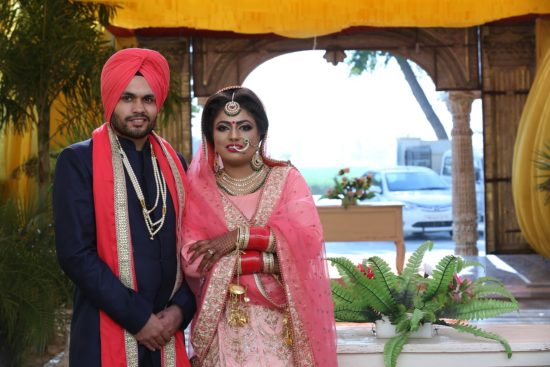Marriages, they say, are made in heaven. They are unions of souls—sagas of love impossible to limit to the dotted line. But here on earth, while societal customs/rituals build the bond of holy matrimony, it is essential to document things on paper aka marriage registration.
What is Marriage Registration?
Simply put, it is the process of obtaining a certificate from a Marriage Registrar that states that a couple’s marriage is official. While Hindus, Buddhists, Jains, and Sikhs can register their marriage under the Hindu Marriage Act, 1955, those of other faiths/those entering into an inter-religion marriage can register under the Special Marriage Act, 1954. The latter also applies if you wish to marry a foreigner (and the ceremony is held in India).
Is Marriage Registration Mandatory in India?
The simple answer: No. If you have been married according to the norms/traditions of your faith and community, you will be considered man-and-wife. In the unfortunate case of a separation or divorce, you’ll have to face the full brunt of legal proceedings.
The real answer: Yes. It’s true that a marriage registration certificate is not mandatory for your marriage to be considered valid in India. However, it does become essential when applying for spouse-visa, in lawsuits, to avail of medical facilities under your spouse’s insurance cover, to open a joint bank account, and for a myriad of similar needs. This applies to all Indian citizens across religions. A recent government order in June 2018 also made registration mandatory for NRI men who get married in India.
In a historic judgment in 2006 (the “Seema versus Ashwani Kumar” case), the Supreme Court declared that it should be mandatory for all Indian citizens to register their marriage, irrespective of their religion or community. In 2012, the government tabled a Bill to this effect in the Parliament (the “Compulsory Registration of Marriages Act”). It was primarily formulated to protect women from atrocities such as child marriage, denial of property rights, trafficking, etc. However, the Bill lapsed in 2014. Today, while marriage registration rates have risen, thousands of marriages go unregistered. There are two major deterrents: A) Perceived difficulties in the process and B) Lack of awareness.
Online Marriage Registration Process in India
So, is the process really challenging and time-consuming? It doesn’t have to be. From Aadhaar card registration to marriage registration, the government has digitized many formerly cumbersome processes. Let’s understand how to get a marriage certificate in India in detail.
I. Making the Appointment
A simple rule of thumb: the sooner you make the appointment, the earlier you get your marriage certificate. Remember that if you’re registering your marriage under the Special Marriage Act, you must give a 30-day notice. Follow these steps to make the appointment (before or after the wedding):
- Search for the website of your municipality and select your district. You can choose your district or that of your spouse (minimum period of residence before the marriage: six months). Example: For online marriage registration in Delhi, log in to https://edistrict.delhigovt.nic.in/. Residents of Mumbai can use https://portal.mcgm.gov.in/
- Click on “Registration of Marriage”
- Carefully fill in the marriage certificate form. This includes details such as religion, address, occupation, parents’ details, witness’s details, etc.
- Select date of appointment
- Submit your application
- After submission, you’ll receive an acknowledgment slip with a number. Take prints of this slip as well as the completed application form and save them for your appointment
II. Preparing the Documents for Marriage Registration
Before your appointment, you’ll need to prepare the following documents for marriage registration in India. Note that these are required for both the husband and the wife and must be attested by a Gazetted Officer.
- Application form (duly filled and signed)
- Address proof (driving licence/passport/voter ID/Aadhaar card)
- Proof of date of birth (school certificate/passport/birth certificate)
- Passport-sized photographs (4)
- Marriage invitation card
- Photograph of marriage (1)
- Marriage affidavit (in a prescribed format*)
- Address proof and PAN card for witnesses (any two people who have attended the marriage)
- Divorce decree (in case of a divorcee) and spouse’s death certificate (in case of a widow/widower)
*Sample Format
I, _____ son of _____, resident of _____, do hereby solemnly declare as under:
1: That I am _____ years old and am major according to the law.
2: That I was married with _____ Daughter of _____, resident of _____ on _____ at _____ according to _____ rites and ceremonies in the presence of friends, relatives and family members of both the parties.
3: That no dowry was taken or given by either party in the said marriage.
4: That no pressure or undue influence was practised upon me for my said marriage.
VERIFICATION:
Verified that the contents of my above affidavit are correct to best of my knowledge and nothing has been concealed therein.
III. Getting the Marriage Certificate
Finally, on the day of the appointment, you (both the husband and the wife) will have to visit the office of the Marriage Registrar with all the required documents. You’ll have to pay the necessary fee**, and then receive the certificate on the same day as the appointment. It’s not currently possible to get the marriage certificate online without a physical visit to the Marriage Registrar’s office.How Much Does it Cost to Register a Marriage in India?
The cost involved is nominal: Rs. 100/- for registering under the Hindu Marriage Act and Rs. 150/- for registering under the Special Marriage Act. You must deposit the fees to the cashier (at the Registrar’s office) and attach the receipt with your application form.
How Much Time Does it Take to Obtain Marriage Certificate in India?
In case of the Hindu Marriage Act, your appointment will be within 15 days of the online registration. If you’re registering under the Special Marriage Act, you might have to wait up to 60 days. If you’re in a rush—say, if this is stalling your visa application—you can avail of the Tatkal Marriage Registration scheme wherein you’ll receive the certificate within 24 hours (single-day authorization). The price for the Tatkal Marriage Certificate is Rs. 10,000/-.
Note: If you want to register your marriage directly, i.e., bypass the online application procedure, you (both the husband and the wife) can directly visit the office of the Marriage Registrar with the duly filled-in application form and the required documents. He/she will give you an appointment, and you’ll have to revisit the office on the said date. Following the online marriage registration process is convenient and less time-consuming.
Things to Remember When Registering Your Marriage Online
While the authorities are continually endeavoring to streamline the marriage registration process, you might still experience some glitches. Keep these pointers in mind:
- Carry all the required documents with you for the appointment. Ensure that all your documents are valid and attested
- Rely on the government’s website for the marriage registration or avail of the services of authorized agents. Do not pay any third parties without legal proof of the services they provide
- Opt to register your marriage well in time (preferably within 30 days of your wedding). This will protect you from hassles during foreign travel, bank-account openings, etc.
- Ensure that you apply for a marriage certificate in the district that either you or your spouse reside in (and can provide proof for). For instance, residents of Mumbai should opt for online marriage registration Mumbai.
Court Marriage vs Marriage Registration
In all this talk about legal nuances, it is easy to confuse two similar-sounding but entirely different terms—court marriage and marriage registration.
When you have a court marriage, you bypass the traditional wedding rituals of your community/family. Any two people old enough to get married (18 years for women and 21 years for men) can opt for a court marriage. All you’ll need is the presence of a marriage officer, three witnesses, and necessary documents (similar to those required for registering a marriage).
However, marriage registration typically refers to a legal record of your marriage that was solemnized by the rituals followed by members of your faith, family and community.
Final Word
A marriage certificate is legal proof of your marriage and protects you in all kinds of tricky situations, including divorce and abandonment. So weighty is this document that it invariably stirs up widespread resistance. You may be told, “It’s inauspicious to think such thoughts while entering into a bond this pure.” Or, “Why does a traditional relationship like marriage need lawyers and officers to attest to its validity?” If you’ve been considering registering your marriage but have been put off by such naysayers, remember only this: Marriage registration, by its very essence, is reassuring. It doesn’t question the bond of marriage; it cements the relationship you’ve entered into for life.
* * *
Image Credits
- https://unsplash.com/photos/OJ6LOiMcQ5k (marriage registration in India)
- https://pixabay.com/en/wedding-marriage-certificate-ring-2944587/ (marriage certificate in India)
- https://pixabay.com/en/wedding-wedding-planner-in-chandigarh-3649742/ (marriage registration in India)







A very unique and well researched blog for me! Lot of confusions get cleared and happy that I have all the necessary information with me.